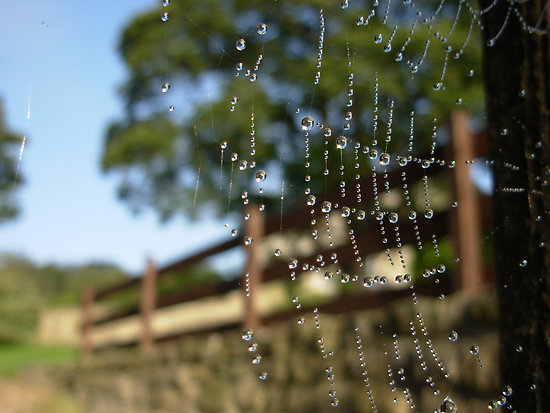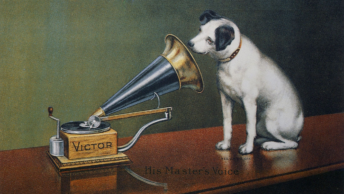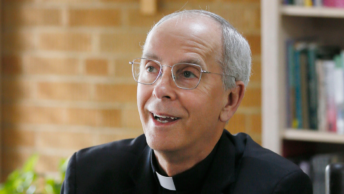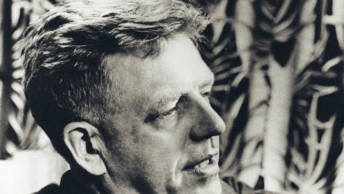
Two years ago, on St. Valentine’s Day, I traveled across the state in order to bring home the new family pet: an eight-week-old Miniature Pinscher puppy. My daughters, for obvious reasons, quickly named her Rosie. Soon after, the dog rewarded me with the esteemed title of alpha. As a practical matter, this means that I am the first responder when it is time for the dog to head outdoors during the middle of the night. The routine is as follows: each night at about 1 a.m. the dog emerges from beneath her blanket and shakes her collar in my ear. In a reverse Pavlov’s dog syndrome, this prompts me to get out of bed, walk down the stairs, open the patio door, and walk with her until she reaches the lawn. Now at this time of the evening, other than the sound of a few cars returning home from a night out, not much else is happening in the small town in which I live. But to my surprise, I have found something quite grand occurring on my patio; truly something that I would never have been aware of without my trusted dog’s invitation. One night, while standing on the patio beneath the stars, I remember glancing up at a window to find that a magnificent spider web was in the process of being spun. On this night, once the spider became aware of my presence, she stopped; but before long, she began to spin again. Up and down, and then sideways, a perfect web was spun. From that evening on, I must confess that I have looked forward to each magnificent performance.
But, you are probably asking, what have spider webs to do with the readings for this 23rd Sunday in Ordinary Time? From my perspective, plenty. For if we can imagine the individual strands of the web as somehow representing the parts of our own life and particularly, the connections we have with others, then we can easily tie this image to St. Paul’s view of the Body of Christ given in First Corinthians (1:31), namely: that we are many parts, but still one body. For the Apostle, the Body of Christ is comprised of many individuals, each with unique gifts and talents to be shared with the entire Body. But, to the extent that some of the parts are ill or seemingly absent, the entire Body suffers.
In Matthew’s Gospel (18:15-20), we are reminded of some key events that have unfolded during these past few weeks, especially of Jesus bestowing upon Peter the keys of authority and the subsequent power to bind and loose. But today, we are also made aware of something very significant that was present in that early Christian community, and something that continues to this day. There is a recognition that sin is present among the members and that community of believers is determined to do something about it. By their actions, we see a pattern develop.
Initially, we are told that if we see our brother engaged in sin, we should go to him and speak with him about his transgression. Next, if that does not convince him, we should bring other witnesses to speak with him. And finally, if even that does not convince him to repent, then we should take him to the Church.
Given this progression of events, what really seems to be occurring here is that the Body of Christ, to the best of it’s ability, is attempting to heal and restore itself to a unified whole (similar to way our bodies work when we encounter an infection). Note, however, the way in which no person is given an exemption from this healing and reconciling process. Each member is given a responsibility to minister and speak with the other members who find themselves in a state of sin. In our first reading, the prophet Ezekiel (1 Ez 33:7-9) touched upon this when he issued this bulletin: “But if you warn the wicked, trying to turn him from his way, and he refuses to turn from his way, he shall die for his guilt, but you shall save yourself.”
Like the spider, who when part of her web is destroyed, she valiantly attends to its restoration; we, too, are called to repair that which has been damaged and torn apart- within the Body of Christ. And more often than not, before attending to the faults and misgivings of other, each one of us needs to look deeply and honestly at our own decisions and actions. Has our self-centeredness or lack of caring brought injury to another? Have our actions, or inactions, helped bring about a sense of disunity in our own family and relational circles?
In Proverbs (24:16), we are told that even a just man falls seven times a day. Today, then, before judging first our neighbor’s sin, may we take stock of our own failings, repent, and do what St. Paul (2 Romans 13:8-10) challenges us to in the second reading:
“Owe nothing to anyone, except to love one another.”
Let’s face it, the process of healing and mending begins with each of us. And only after a visit to the Sacrament of Reconciliation and an apology, letter or email to those whom we have harmed should we call upon others to consider their own predicament. And not with brickbats, either! But rather, that through our kindness and love, may we be a light of Christ in the lives of others, a light that others may not only see, but also come to count on. To paraphrase an ancient saying: “May we go out and preach the Good News to the world, and if necessary, use words.”
For in the end, it is One Body that we are part of. And as members of that Body, we are individually and collectively called to help build it up and restore it to it’s rightful state. In gathering together in His name, to reconcile ourselves with one another, we should not be afraid, for it is Jesus who is in our midst. May we marvel at the way He works in our lives!








